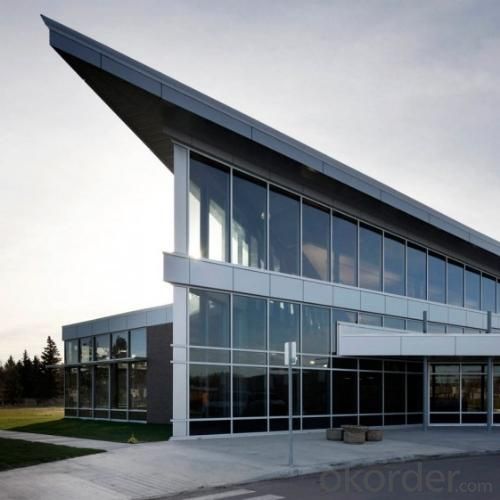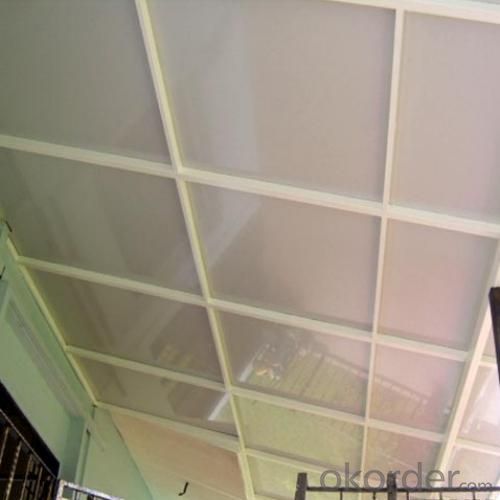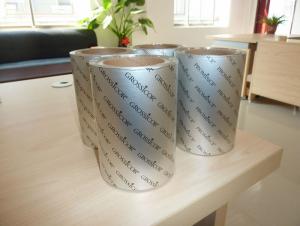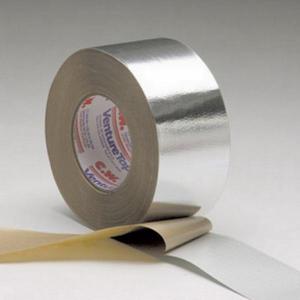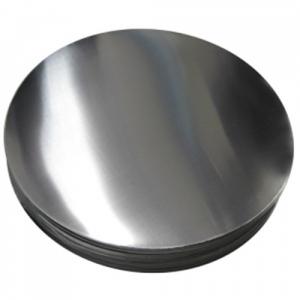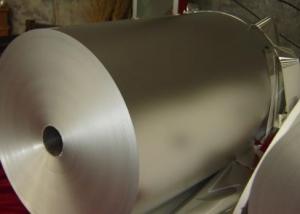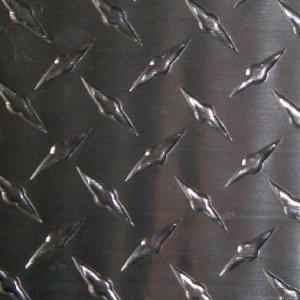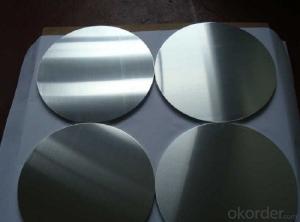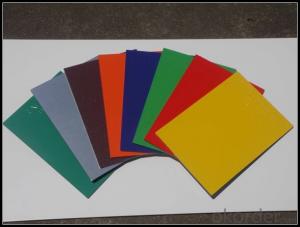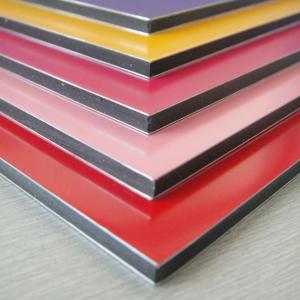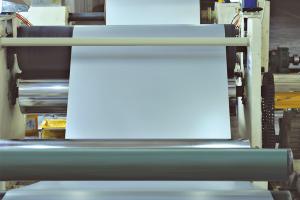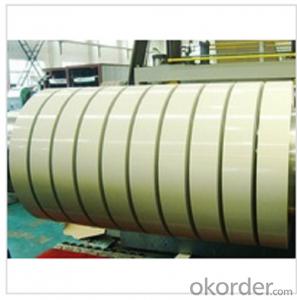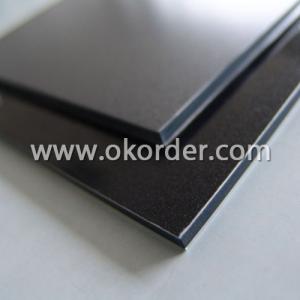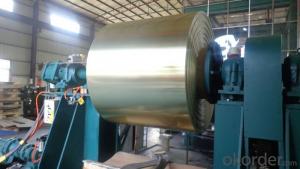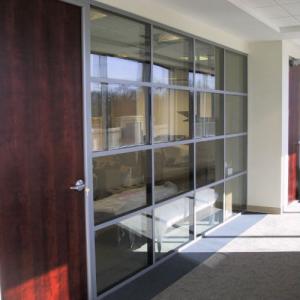Aluminum Composite Panel 3003
- Loading Port:
- China Main Port
- Payment Terms:
- TT or LC
- Min Order Qty:
- 20 Tons m.t.
- Supply Capability:
- 1000 Tons Per Month m.t./month
OKorder Service Pledge
OKorder Financial Service
You Might Also Like
Specifications of Aluminium Composite Panel 3003
1.Coating: PVDF/PE
2.Core: unbreakable/ breakable LDPE core
3.ISO9001:2000 and SGS certificate
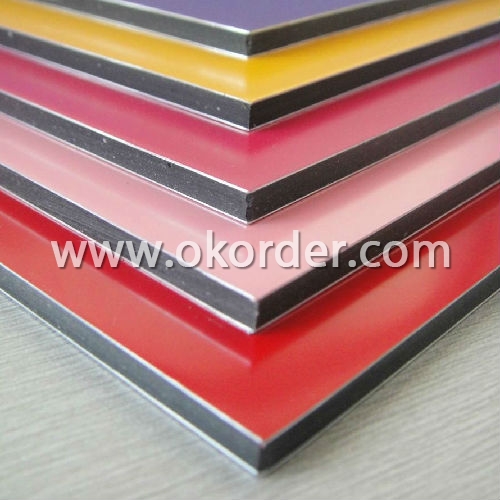
1. Standard:
according to GB/T 17748-1999 standard
2. Material:
a) Front: aluminum alloy sheet coated with fluoro-carbon resin
(PVDF) and polyester resin (PE) roasting painting
b) Core: nontoxic polyethylene.
c) Back: aluminum alloy sheet coated with polyester resin painting
d) Surface finish: treated with PVDF and PE resin rolling roasting .
coating
e) Surface coating thickness: 30um
f ) Aluminum alloy sheet thickness: 0.1mm, 0.12mm, 0.15mm, 0.2mm,
0.3mm, 0.4mm, 0.45mm, 0.5mm
3. Dimensions:
a) Thickness: 3mm, 4mm
b) Width: 1220mm 1500mm..
c) Length: 2440mm, 3200mm, 4000mm,5000mm (max: 6 meter)
d) Weight: 5.5kg/sqm based on 4mm thickness.
e) Standard size: 1220 x 2440mm
f) Nonstandard sizes are available according to requirement of customers
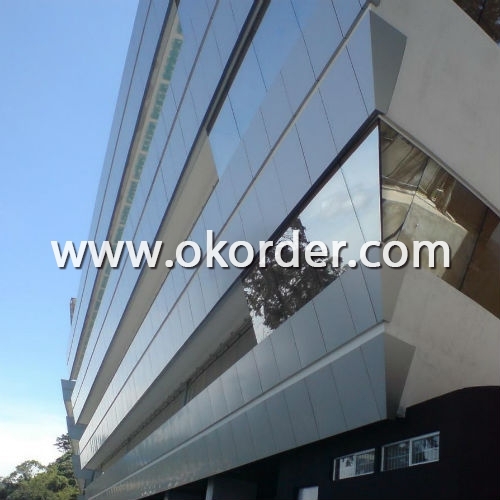
4. Application scope of aluminium composite panel 3003:
1) Building exterior curtain walls..
2) Decoration and renovation additions for old buildings
3) Decoration of interior walls, ceilings, bathrooms, kitchens and balconies
4) Shop door decorations
5) Advertisement board display platforms and signboards
6) Wallboards and ceilings for tunnels..
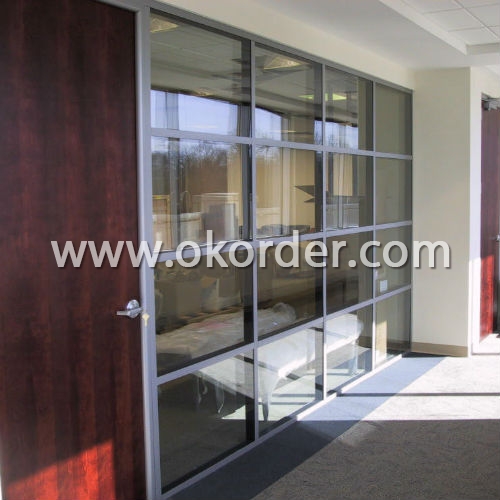
Packaging: Seaworthy package, bubble plastic bag inside, anti-moisture paper wrapped outside, covered with cartons, on wooden pallets, in containers. Pallet weight: Max. 2.30 tons.
Shipment: the goods will be delivered in 40 days after getting the buyer's payment.
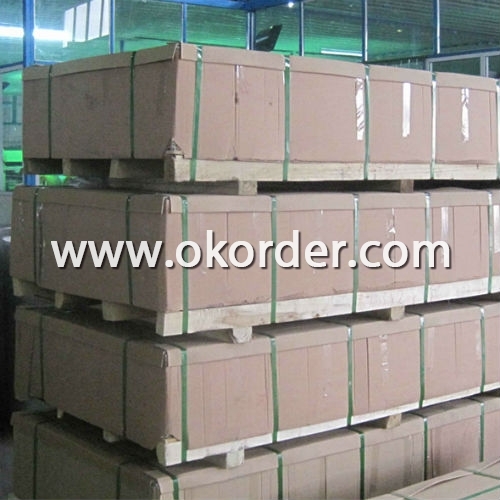
Repeat rolling - Cleaning - Pretreatment – Coating - Inspection - Film production - Plastic extruding – Compositing - Packing
- Q: This question asks about the impact of adding magnesium to aluminum alloys and how it changes their characteristics.
- <p>The addition of magnesium to aluminum alloys significantly improves their mechanical properties, particularly strength and rigidity. Magnesium enhances the alloy's resistance to corrosion and increases its formability. It also contributes to better weldability and reduces the likelihood of hot cracking during the welding process. However, the addition of magnesium can also lead to a decrease in electrical conductivity and may increase the alloy's susceptibility to stress corrosion cracking. The overall effect of magnesium on aluminum alloys is to create a material that is lighter, stronger, and more resistant to environmental degradation, making it suitable for various applications in the aerospace, automotive, and construction industries.</p>
- Q: Is it possible to employ aluminum for the creation of innovative packaging materials?
- <p>Yes, aluminum is highly suitable for making new types of packaging materials due to its lightweight, malleability, and corrosion resistance. It is often used in food and beverage cans, pharmaceutical packaging, and even flexible packaging films. Aluminum's recyclability also makes it an environmentally friendly choice for sustainable packaging solutions. Innovations in aluminum packaging continue to emerge, focusing on improved barrier properties, lighter weight, and enhanced recycling capabilities.</p>
- Q: Explain the differences between aluminum and other metals concerning their ability to degrade or break down in the environment.
- <p>Aluminum is not biodegradable in the traditional sense, meaning it does not break down into simpler substances through natural processes. It is highly resistant to corrosion and can persist in the environment for a long time. Unlike metals like iron, which rust and degrade over time, aluminum remains largely intact. However, aluminum can react with other elements in the environment, such as oxygen, to form a thin layer of aluminum oxide on its surface, which can alter its properties. Other metals like magnesium and zinc are more biodegradable as they can corrode and break down more readily in certain conditions, contributing to their use in biodegradable materials.</p>
- Q: This question asks for examples of how recycled aluminum can be utilized.
- <p>Recycled aluminum has numerous applications, including the manufacturing of beverage cans, automotive parts, construction materials, and electronic components. It is also used in the production of aluminum foil, packaging materials, and various household items. Recycled aluminum is valued for its durability, lightweight properties, and energy efficiency in production, making it an environmentally friendly choice for many industries.</p>
- Q: Does aluminum have the ability to corrode or deteriorate over time?
- <p>Yes, aluminum can corrode, but it typically forms a protective oxide layer on its surface when exposed to air, which prevents further corrosion. This layer of aluminum oxide is very thin but strong and stable, making aluminum highly resistant to corrosion. However, under certain conditions such as exposure to certain chemicals or in the absence of oxygen, aluminum can still corrode. Corrosion can also occur if the protective layer is damaged or compromised.</p>
- Q: This question asks about the methods to guarantee that the aluminum content in products is within safe limits.
- <p>To ensure that products do not contain excessive amounts of aluminum, implement a strict quality control process. This includes sourcing raw materials from suppliers who adhere to strict aluminum content limits, conducting regular testing of products using advanced analytical techniques such as Inductively Coupled Plasma Mass Spectrometry (ICP-MS) or Atomic Absorption Spectroscopy (AAS). Establishing and following Good Manufacturing Practices (GMP) is crucial, along with continuous monitoring and improvement of production processes. Additionally, staying updated with regulatory guidelines and setting internal limits that are below the legal maximum levels can help maintain safety and compliance.</p>
- Q: This question seeks to understand the safety standards that aluminum products must adhere to, ensuring they are safe for use and do not pose health or environmental risks.
- <p>Safety standards for aluminum products vary by region and application but generally focus on ensuring the products are safe for their intended use and do not pose health or environmental risks. Standards often cover material composition, manufacturing processes, and finished product testing. For example, the American Society for Testing and Materials (ASTM) and the International Organization for Standardization (ISO) provide standards for aluminum alloys and their applications. Additionally, the Food and Drug Administration (FDA) has specific guidelines for aluminum used in food contact materials to prevent contamination. Compliance with these standards is crucial for manufacturers to maintain product safety and consumer trust.</p>
- Q: Explain the various applications of aluminum in the construction industry.
- <p>Aluminum is widely used in building materials due to its lightweight, high strength, and corrosion resistance. It's utilized in window frames, doors, curtain walls, and roofing systems for its durability and energy efficiency. Aluminum's malleability allows it to be shaped into various forms, making it ideal for facades and decorative elements. It's also used in structural components like beams and columns, and in electrical wiring due to its excellent conductivity. Additionally, aluminum's sustainability makes it a preferred choice in green building practices, as it's recyclable and has a low environmental impact.</p>
- Q: Explain the relationship between aluminum and electrum, if any.
- <p>Aluminum and electrum are two distinct metals with no direct relationship. Aluminum is a lightweight, silvery-white metal that is the most abundant metallic element in the Earth's crust. It is known for its corrosion resistance and is widely used in various industries. Electrum, on the other hand, is a naturally occurring alloy of gold and silver, valued for its unique properties and historical significance. While both metals are used in various applications, they are chemically and physically different and do not have a direct connection.</p>
- Q: Is there a more environmentally friendly method for recycling aluminum?
- <p>Yes, aluminum can be recycled in a more environmentally friendly way. The process of recycling aluminum is already quite efficient, as it requires only 5% of the energy needed to produce new aluminum from raw materials. However, further improvements can be made by optimizing recycling processes, reducing transportation emissions, and increasing the use of recycled aluminum in new products. Additionally, implementing closed-loop recycling systems where aluminum is continuously recycled without loss in quality can minimize waste and environmental impact. Educating consumers about the importance of recycling and improving collection systems can also contribute to more sustainable aluminum recycling practices.</p>
1. Manufacturer Overview
| Location | Shanghai, China |
| Year Established | 2004 |
| Annual Output Value | Above US$200 Million |
| Main Markets | Mid East;Eastern Europe;North America |
| Company Certifications | ISO 9001:2000;ISO 14001:2004;OHSAS 18001 |
2. Manufacturer Certificates
| a) Certification Name | |
| Range | |
| Reference | |
| Validity Period |
3. Manufacturer Capability
| a) Trade Capacity | |
| Nearest Port | Shanghai |
| Export Percentage | 30%-50% |
| No.of Employees in Trade Department | 21-50 People |
| Language Spoken: | English;Chinese |
| b) Factory Information | |
| Factory Size: | Above 100,000 square meters |
| No. of Production Lines | Above 10 |
| Contract Manufacturing | OEM Service Offered;Design Service Offered |
| Product Price Range | Average |
Send your message to us
Aluminum Composite Panel 3003
- Loading Port:
- China Main Port
- Payment Terms:
- TT or LC
- Min Order Qty:
- 20 Tons m.t.
- Supply Capability:
- 1000 Tons Per Month m.t./month
OKorder Service Pledge
OKorder Financial Service
Similar products
Hot products
Hot Searches
Related keywords




